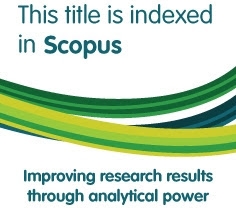Islamic Clicktivism: Internet, Democracy and Contemporary Islamist Activism in Surakarta
Abstract
Since the collapse of the New Order regime, social development has led Indonesia to become a more democratic and modern than any other Muslim majority countries. The development of democracy in Indonesia has also seen the proliferation of modern Islamist activism online. This form of cyber activism, named here as Islamic “clicktivism,” has a discursive function. This paper examines how the proliferation of a cyber Islamist movement can be related to ongoing democratization in Indonesia. It was found that Islamic clicktivism has emerged in the process of democratization, modernization and globalization. Clicktivism encourages members of Islamist groups to adopt the principles and logic of the pillars of democracy, and to perpetuate their struggle and promote their existence during the development of democracy in Indonesia. Through their clicktivism, they bring the discursive voices of Islamism democratically to national issues in the common interest of Indonesians.
Keywords
Full Text:
PDFReferences
Ahyar, Muzayyin. 2015a. “Agama, Negara dan Public Reason: Kasus Penutupan Lokalisasi Km 17 Karang Joang Balikpapan Dalam Sudut Pandang Public Reason.” Lentera: Jurnal Ilmu Komunikasi Dan Sosial Keagamaan 17 (1).
———. 2015b. “Gerakan Islam Radikal Dan Pertumbuhan Demokrasi Di Indonesia (Studi Atas Kelompok Islamis Lokal Tim Hisbah Solo).” UIN Sunan Kalijaga. http://digilib.uin-suka.ac.id/17397/.
———. 2015c. “Membaca Gerakan Islam Radikal dan Deradikalisasi Gerakan Islam.” Walisongo: Jurnal Penelitian Sosial Keagamaan 23 (1):1–26. https://doi.org/10.21580/ws.2015.23.1.220.
———. 2015d. “Ahmadiyah dalam Labirin Syariah dan Nasionalisme Ketuhanan di Indonesia.” Mazahib: Jurnal Pemikiran Hukum Islam 14 (2). https://doi.org/10.21093/mj.v14i2.340.
———. 2017. “Is Islam Compatible with Democracy? Islamist Movement’s Trajectory on Democratization in Indonesia.” Walisongo: Jurnal Penelitian Sosial Keagamaan 25 (1):139–72. https://doi.org/10.21580/ws.25.1.1335.
Alfitri. 2008. “Religious Liberty in Indonesia and the Rights of ‘Deviant’ Sects.” Asian Journal of Comparative Law 3:1–27. https://doi.org/10.1017/S2194607800000144.
———. 2015. “Whose Authority? Contesting and Negotiating the Idea of a Legitimate Interpretation of Islamic Law in Indonesia.” Asian Journal of Comparative Law 10 (2):191–212. https://doi.org/10.1017/asjcl.2016.1.
Appadurai, A. 1990. “Disjuncture and Difference in the Global Cultural Economy.” Theory, Culture & Society 7 (2):295–310. https://doi.org/10.1177/026327690007002017.
Ayubi, Nazih. 2003. Political Islam: Religion and Politics in the Arab World. Routledge.
Barber, Benjamin R. 2003. Jihad Vs. McWorld. Corgi.
Bayat, Asef. 2007. Making Islam Democratic: Social Movements and the Post-Islamist Turn. Stanford University Press.
Bayat, Asef, and Linda Herrera. 2010. Being Young and Muslim: New Cultural Politics in the Global South and North. Oxford University Press.
Brauchler, Birgit. 2004. “Islamic Radicalism Online: The Moluccan Mission of the Laskar Jihad in Cyberspace.” The Australian Journal of Anthropology 15 (3):267–85.
Chadwick, Andrew. 2006. Internet Politics: States, Citizens, and New Communication Technologies. Oxford University Press.
Chattopadhyay, Saayan. 2011. “Online Activism for a Heterogeneous Time: The Pink Chaddi Campaign and the Social Media in India.” In Building and Strengthening Communities and Social Networks, Spring, 27:63–68. Pennsylvania.
Dahlberg, Lincoln, and Eugenia Siapera. 2007. Radical Democracy and the Internet: Interrogating Theory and Practice. Basingstoke, U.K. : Palgrave Macmillan. http://trove.nla.gov.au/version/30957937.
“Grass Roots in Cyberspace - Bonchek - 1995 | Transaction Cost.” n.d. Scribd. Accessed April 6, 2017. https://www.scribd.com/doc/82147418/Grass-Roots-in-Cyberspace-Bonchek-1995.
Hasan, Noorhaidi. 2006. Laskar Jihad. SEAP Publications.
———. 2013. The Making of Public Islam Piety, Democracy and Youth in Indonesian Politics. sukapress.
Hilmy, Masdar. 2010. Islamism and Democracy in Indonesia: Piety and Pragmatism. Institute of Southeast Asian Studies.
Kepel, Gilles. 2006. Jihad: The Trail of Political Islam. I.B.Tauris.
Lim, Merlyna. 2005. “@rchipelago Online: The Internet and Political Activism in Indonesia.” Enschede, Netherlands: Twente.
———. 2012. “Life Is Local in the Imagined Global Community: Islam and Politics in the Indonesian Blogosphere.” Journal of Media and Religion 11 (3):127–40. https://doi.org/10.1080/15348423.2012.706144.
———. 2013. “Many Clicks but Little Sticks: Social Media Activism in Indonesia.” Journal of Contemporary Asia 43 (4):636–57. https://doi.org/10.1080/00472336.2013.769386.
———. 2017. “Freedom to Hate: Social Media, Algorithmic Enclaves, and the Rise of Tribal Nationalism in Indonesia.” Critical Asian Studies 49 (3):411–27. https://doi.org/10.1080/14672715.2017.1341188.
McCaughey, Martha, and Michael D. Ayers. 2003. Cyberactivism: Online Activism in Theory and Practice. Routledge.
Narciso, Jerson Benia. 2008. “Christianization in New Order Indonesia (1965-1998): Discourses, Debates, and Negotiations.” Melintas 24 (3). http://journal.unpar.ac.id/index.php/melintas/article/view/943.
Radsch, Courtney C. 2016. Cyberactivism and Citizen Journalism in Egypt: Digital Dissidence and Political Change. Springer.
Rheingold, Howard. 2000. The Virtual Community: Homesteading on the Electronic Frontier. MIT Press.
Roy, Olivier. 1994. The Failure of Political Islam. Harvard University Press.
———. 2006. Globalized Islam: The Search for a New Ummah. Columbia University Press.
———. 2007. Secularism Confronts Islam. Columbia University Press.
Sayyid, Bobby S., and Salman Sayyid. 2003. A Fundamental Fear: Eurocentrism and the Emergence of Islamism. Zed Books.
Tarrow, Sidney. 1998. Power in Movement: Social Movements and Contentious Politics. Cambridge University Press.
Tibi, Bassam. 2002. The Challenge of Fundamentalism: Political Islam and the New World Disorder. University of California Press.
Tilly, Charles. 1978. From Mobilization to Revolution. McGraw-Hill.
Van Laer, Jeroen, and Peter Van Aelst. 2010. “Internet and Social Movement Action Repertoires: Opportunities and Limitations.” Information, Communication & Society 13 (8):1146–71. https://doi.org/10.1080/13691181003628307.
White, Micah. 2016. The End of Protest: A New Playbook for Revolution. Knopf Canada.
Widyantoro, Hary. 2017. “Undemocratic Response Towards Deviant Judgement and Fatwa: Sunni-Shiite Conflict in Sampang, Madura, East Java.” Mazahib: Jurnal Pemikiran Hukum Islam 16 (1). https://doi.org/10.21093/mj.v16i1.768.
Wiktorowicz, Quintan. 2004. Islamic Activism: A Social Movement Theory Approach. Indiana University Press.
Wildan, Muhammad. 2008. “Mapping Radical Islamism in Solo: A Study of Proliferation of Radical Islamism in Central Java, Indonesia.” Al-Jami’ah: Journal of Islamic Studies 46 (1):35–69.
DOI: https://doi.org/10.15408/sdi.v24i3.4859
Refbacks
- There are currently no refbacks.

All publication by Studia Islamika are licensed under a Creative Commons Attribution-NonCommercial 4.0 International License.
Studia Islamika, ISSN: 0215-0492, e-ISSN: 2355-6145
View My Stats
